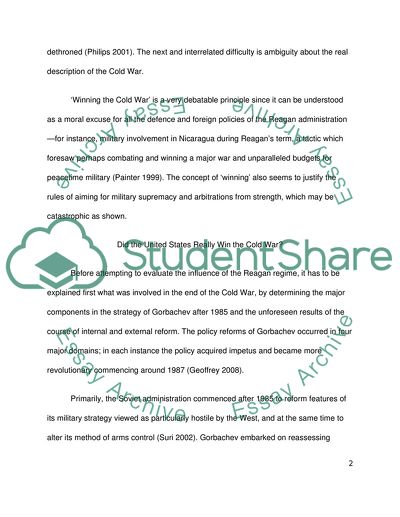Cite this document
(The Extend of the West Victory in the Cold War Research Paper, n.d.)
The Extend of the West Victory in the Cold War Research Paper. Retrieved from https://studentshare.org/history/1748668-to-what-extend-can-it-be-said-that-the-west-won-the-cold-war
The Extend of the West Victory in the Cold War Research Paper. Retrieved from https://studentshare.org/history/1748668-to-what-extend-can-it-be-said-that-the-west-won-the-cold-war
(The Extend of the West Victory in the Cold War Research Paper)
The Extend of the West Victory in the Cold War Research Paper. https://studentshare.org/history/1748668-to-what-extend-can-it-be-said-that-the-west-won-the-cold-war.
The Extend of the West Victory in the Cold War Research Paper. https://studentshare.org/history/1748668-to-what-extend-can-it-be-said-that-the-west-won-the-cold-war.
“The Extend of the West Victory in the Cold War Research Paper”, n.d. https://studentshare.org/history/1748668-to-what-extend-can-it-be-said-that-the-west-won-the-cold-war.


